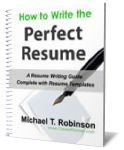"Postsecondary Education Administrators"
Job Description - Part 3 - Skills Required
Part 1
Duties / Tasks
Part 2
Activities
Part 3
Skills
Part 4
Abilities
Part 5
Knowledge
Skills Needed for: "Postsecondary Education Administrators"
1) Active Listening -- Giving full attention to what other people are saying, taking time to understand the points being made, asking questions as appropriate, and not interrupting at inappropriate times.
2) Reading Comprehension -- Understanding written sentences and paragraphs in work related documents.
3) Critical Thinking -- Using logic and reasoning to identify the strengths and weaknesses of alternative solutions, conclusions or approaches to problems.
4) Writing -- Communicating effectively in writing as appropriate for the needs of the audience.
5) Speaking -- Talking to others to convey information effectively.
6) Management of Personnel Resources -- Motivating, developing, and directing people as they work, identifying the best people for the job.
7) Judgment and Decision Making -- Considering the relative costs and benefits of potential actions to choose the most appropriate one.
8) Coordination -- Adjusting actions in relation to others' actions.
9) Time Management -- Managing one's own time and the time of others.
| Thanks for visiting CareerPlanner.com | ||

|
1) Use Career Testing to find the perfect career 2) Is your resume getting you enough interviews? |
 |

|
Thanks for visiting CareerPlanner.com 1) Use Career Testing to find the perfect career 2) Is your resume getting you enough interviews? |
 |
10) Monitoring -- Monitoring/Assessing performance of yourself, other individuals, or organizations to make improvements or take corrective action.
11) Active Learning -- Understanding the implications of new information for both current and future problem-solving and decision-making.
Is being a "Postsecondary Education Administrators" your very best career choice?
Our Career Interest Test will show you which careers match your interests.
Our Free Personality Test will show you which careers match your personality and why.
12) Social Perceptiveness -- Being aware of others' reactions and understanding why they react as they do.
13) Service Orientation -- Actively looking for ways to help people.
14) Instructing -- Teaching others how to do something.
15) Complex Problem Solving -- Identifying complex problems and reviewing related information to develop and evaluate options and implement solutions.
16) Learning Strategies -- Selecting and using training/instructional methods and procedures appropriate for the situation when learning or teaching new things.
17) Persuasion -- Persuading others to change their minds or behavior.
18) Management of Financial Resources -- Determining how money will be spent to get the work done, and accounting for these expenditures.
19) Negotiation -- Bringing others together and trying to reconcile differences.
20) Systems Evaluation -- Identifying measures or indicators of system performance and the actions needed to improve or correct performance, relative to the goals of the system.
21) Operations Analysis -- Analyzing needs and product requirements to create a design.
22) Mathematics -- Using mathematics to solve problems.
23) Management of Material Resources -- Obtaining and seeing to the appropriate use of equipment, facilities, and materials needed to do certain work.
24) Systems Analysis -- Determining how a system should work and how changes in conditions, operations, and the environment will affect outcomes.
Job Description for "Postsecondary Education Administrators" continued here...
Part 1
Duties / Tasks
Part 2
Activities
Part 3
Skills
Part 4
Abilities
Part 5
Knowledge
"Postsecondary Education Administrators" Holland / RIASEC Career Code: E-C-I SOC: 11-9033.00
Click here for "Postsecondary Education Administrators" Jobs
See the Future Outlook and Educational Requirements for "Postsecondary Education Administrators"
Our Most Popular Products





